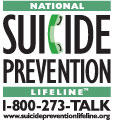Consumer Rights
When you receive any type of service for mental illness, alcoholism, drug abuse, or a developmental disability, you have the following rights:
TREATMENT RIGHTS - Every consumer has the right to:
- Receive prompt and adequate treatment
- Participate in their treatment planning
- Be informed of their treatment and care
- Refuse treatment and medications (unless court-ordered)
- Be free from unnecessary or excessive medications
RECORD PRIVACY AND ACCESS
- Staff must keep consumer information confidential
- Records cannot be released without consumer consent (with some exceptions)
- Consumers may see their records
- Consumers can always see records of their medications and health treatments
- During treatment, access may be limited if the risks outweigh benefits
- Consumers may challenge the accuracy, completeness, timeliness or relevance of entries in their records
COMMUNICATION RIGHTS - Every consumer has the right to:
- Have reasonable access to a telephone *
- See (or refuse to see) visitors daily *
- Send or receive mail
- Contact public officials, lawyers or patient advocates
PERSONAL RIGHTS - Every consumber has the right to:
- Have the least restrictive environment (except for forensic patients)
- Not be secluded or restrained except in an emergency when necessary to prevent harm to self or others
- Wear their own clothing and use their own possessions *
- Have regular and frequent exercise opportunities
- Have regular and frequent access to the outdoors
- Have staff make reasonable (non-arbitrary) decisions about them
- Refuse to work – except for personal housekeeping tasks
- Be paid for work they agree to do that is of financial benefit to the facility
PRIVACY RIGHTS - Every consumber has the right to:
- Not be filmed or taped without his or her consent
- Have privacy in toileting and bathing *
- Have a reasonable amount of secure storage space for his or her possessions *
MISCELLANEOUS RIGHTS - Every consumber has the right to:
- Be informed of his or her rights
- Be informed of any costs of his or her care
- Refuse electro-convulsive therapy (ECT)
- Refuse drastic treatment measures
- File complaints about violations of his or her rights
- Be free from any retribution for filing complaints
The rights with an asterisk (*) behind them may be limited or denied for certain reasons.
For more information on consumer rights see the Department of Health Services Clients Rights
Grievance Resolution
A consumer or person acting on behalf of a consumer may file a grievance if there is concern that the consumer's rights have been violated.
You may talk with staff or contact your Client Rights Specialist, whose name is shown below, if you would like to file a grievance or learn more about the grievance procedure used by the program from which you are receiving services.
Client Rights Specialist:
Emily Phelps, Behavioral Health Compliance Specialist
221 W. Seminary Street, Richland Center
Phone: 608-647-8821
Grievance Resolution Stages
Informal Discussion (Optional)
- You are encouraged to first talk with staff about any concerns you have. However, you do not have to do this before filing a formal grievance with your service provider.
Grievance Investigation - Formal Inquiry
- If you want to file a grievance, you should do so within 45 days of the time you become aware of the problem. The program manager for good cause may grant an extension beyond the 45-day time limit.
- The Client Rights Specialist (CRS) will investigate your grievance and attempt to resolve it.
- Unless the grievance is resolved informally, the CRS will write a report within 30 days from the date you filed the formal grievance. You will get a copy of the report.
- If you and the program manager agree with the CRS's report and recommendations, the recommendations shall be put into effect within an agreed upon time frame.
- You may file as many grievances as you want. However, the CRS will usually only work on one at a time. The CRS may ask you to rank them in order of importance.
Program Manager's Decision
- If the grievance is not resolved by the CRS's report, the program manager or designee shall prepare a written decision within 10 days of receipt of the CRS's report. You will be given a copy of the decision.
County Level Review
- You may appeal the program manager's decision to the Health and Human Services Director. You must make this appeal within 14 days of the day you receive the program manager's decision. You may ask the program manager to forward your grievance or you may send it yourself.
- The Health and Human Services Director must issue his or her written decision within 30 days after you request this appeal.
State Grievance Examiner
- If you are dissatisfied with the decision, you may appeal it to the State Grievance Examiner.
- You must appeal to the State Grievance Examiner within 14 days of receiving the decision from the previous appeal level. You may ask the program manager to forward your grievance to the State Grievance Examiner or you may send it yourself. The address is: State Grievance Examiner, DDES, P.O. Box 7851, Madison, WI 53707-7851.
Final State Review
- Any party has 14 days of receipt of the written decision of the State Grievance Examiner to request a final state review by the Administrator of the Division of Mental Health and Substance Abuse Services (DMHSAS) or designee. Send your request to the DDES Administrator, P.O. Box 7851, Madison, WI 53707-7851.
Recovery is possible for everyone!




